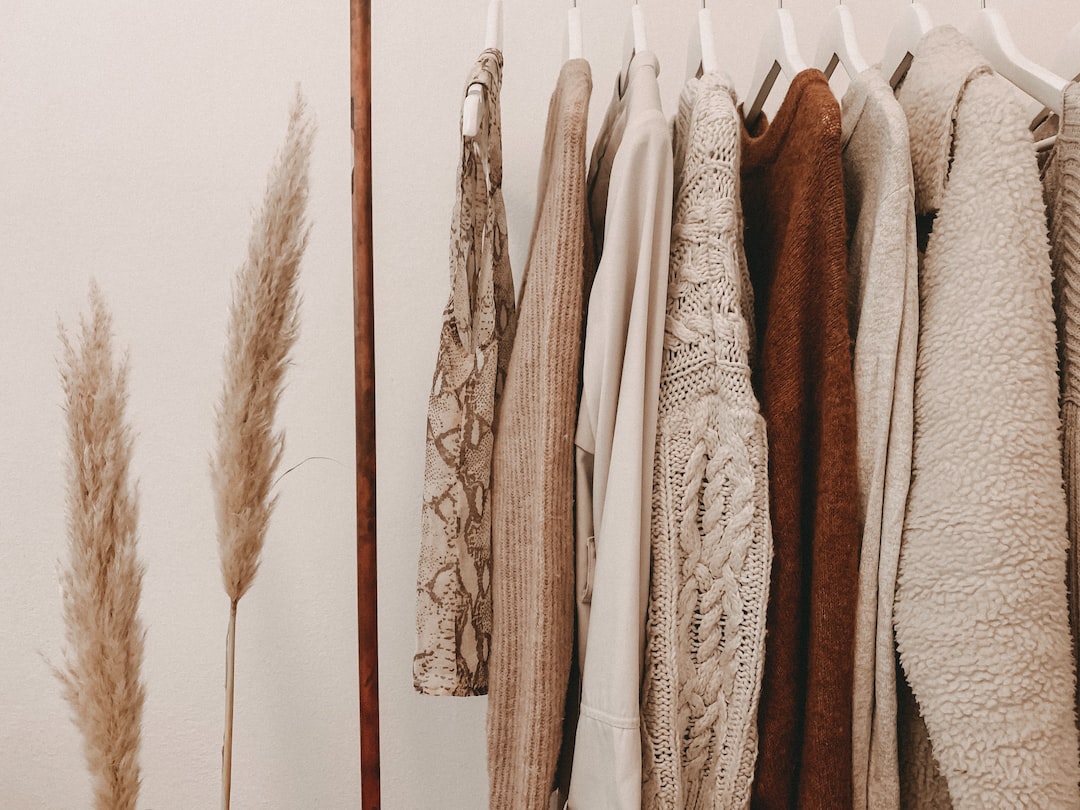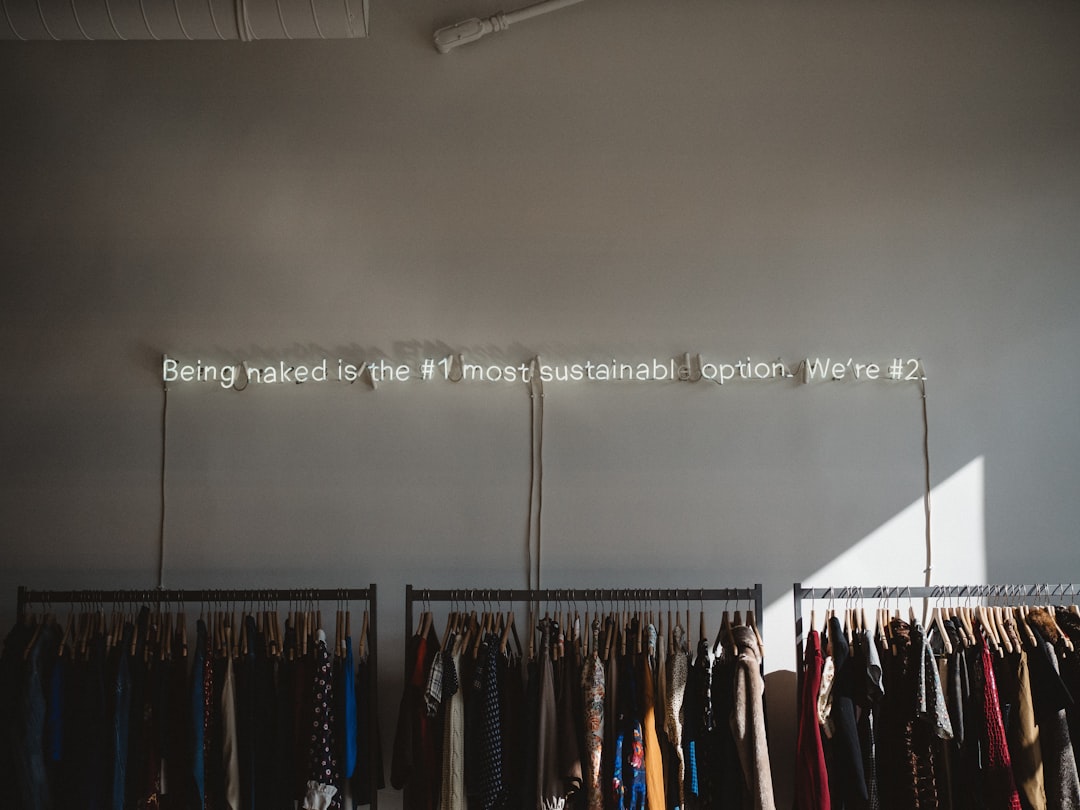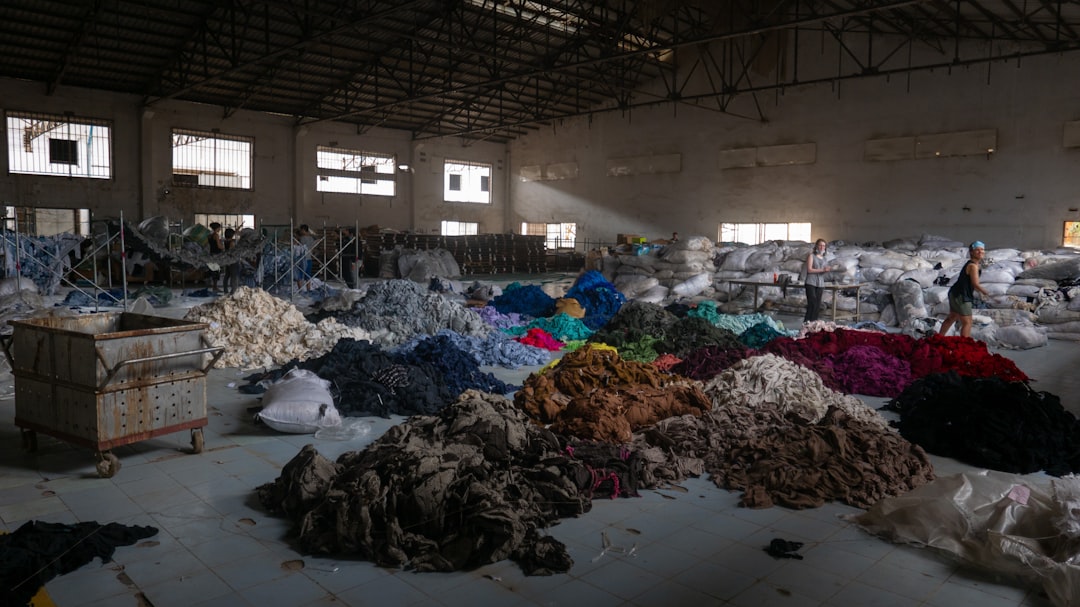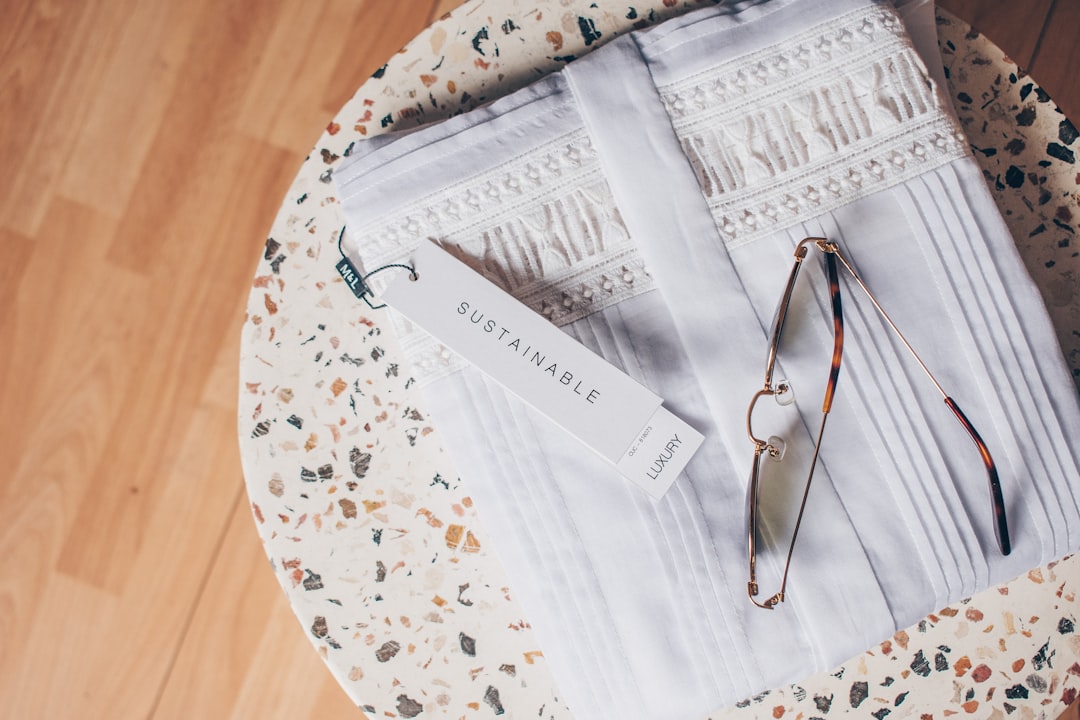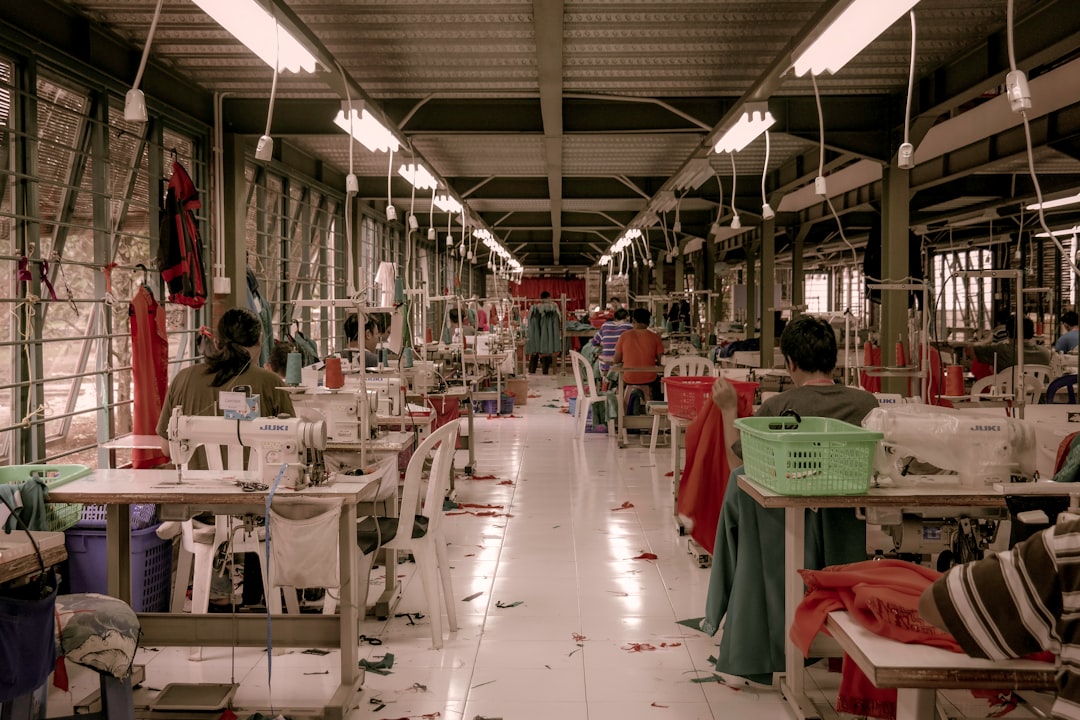Welcome to the new era of fashion where sustainability is the buzzword. It’s no longer enough to create trendy clothing lines that cater to the fast-paced consumer culture. Today’s fashion industry demands startups to be eco-conscious, socially responsible, and sustainable. Enter the new wave of sustainable fashion startups that are disrupting the industry with innovative, adaptable, and goal-oriented approaches. From crafting sustainable luxury to empowering artisans, these startups are changing the game with their strategic and future-oriented vision.
In recent years, we have seen an unprecedented rise in sustainable fashion startups. These companies are not just focused on making a profit, but on creating a positive impact on the environment and society at large. They are creating clothing lines that are made from eco-friendly materials, using sustainable production methods, and empowering local communities. These startups are redefining the meaning of fashion and are paving the way for a more sustainable and responsible industry.
The rise of sustainable fashion startups is not just a trend, but a necessity. The fashion industry is one of the biggest polluters in the world, and it’s time for us to take responsibility for our actions. The fashion industry is responsible for 10% of global carbon emissions and is the second-largest consumer of water. The industry is also notorious for its unethical labor practices, which exploit workers in developing countries.
Sustainable fashion startups are the need of the hour, and they are here to stay. With the growing awareness of the impact of fashion on the environment and society, consumers are demanding more sustainable and responsible clothing options. These startups are filling the gap in the market and are creating a new standard for fashion.
In this blog post, we will explore some of the most innovative and successful sustainable fashion startups that are changing the game. From fabric reformation to textile recycling, we will show you how these startups are creating a more sustainable and responsible future for fashion. Join us on this journey to explore the world of sustainable fashion startups and discover the future of the industry.
The Reformation of Fabric: Bolt Threads
Innovation has always been the driving force behind the fashion industry, and the emergence of sustainable fashion startups is no exception. Bolt Threads is one of the leading companies in the sustainable fashion movement, and they are taking the industry by storm with their innovative approach to fabric production.
Bolt Threads is a biotechnology company that specializes in creating sustainable materials that are designed to replace traditional fabrics like silk and leather. Using cutting-edge technology and state-of-the-art materials, the company is revolutionizing the fashion industry by creating products that are both sustainable and stylish.
One of the ways that Bolt Threads is redefining fabric production is by using spider silk. Spider silk is an incredibly strong and durable material that is also lightweight and flexible. Bolt Threads has created a synthetic version of spider silk that is made from proteins found in the fibers of the material. This synthetic spider silk is then woven into fabric, which can be used to create a wide range of products, from clothing to accessories.
Another way that Bolt Threads is changing the game is by using yeast to produce sustainable materials. The company has developed a process that allows them to ferment yeast to create a material that is similar to traditional leather. This yeast-based material is much more sustainable than traditional leather, as it doesn’t require the use of animal products or harmful chemicals.
Bolt Threads is a prime example of a sustainable fashion startup that is focused on creating products that are both innovative and environmentally friendly. Their approach to fabric production is a testament to their commitment to sustainability, and it is clear that they are paving the way for the future of fashion. With their cutting-edge technology and forward-thinking approach, Bolt Threads is sure to continue shaking up the fashion industry for years to come.
Bolt Threads has created a synthetic version of spider silk that is made from proteins found in the fibers of the material.
The Importance of Closing the Loop in Fashion: Ambercycle
In the fashion industry, the process of creating a garment does not end with the consumer purchasing it. Instead, the garment’s life cycle continues even after it has been worn, washed, and ultimately discarded. Unfortunately, the majority of these discarded garments end up in landfills, where they take years to decompose and release harmful chemicals into the environment.
This is where Ambercycle comes in. This sustainable fashion startup is focused on closing the loop in the life cycle of clothing by using innovative technology to break down and recycle polyester fiber.
Ambercycle’s process involves using enzymes to break down polyester fiber into its constituent monomers, which can then be re-polymerized to create new polyester fiber. This closed-loop recycling process not only reduces the amount of waste sent to landfills, but also reduces the need for virgin polyester production, which is a significant source of greenhouse gas emissions.
But Ambercycle’s impact goes beyond just reducing waste and emissions. By closing the loop on polyester fiber, they are also creating a more sustainable and circular fashion industry. Their technology can be used by fashion brands to create a closed-loop supply chain, where discarded garments are recycled into new garments, reducing the need for virgin materials and reducing the environmental impact of the industry.
Closing the loop in fashion is a critical goal for a more sustainable future, and Ambercycle is leading the way with their innovative technology. As consumers become increasingly aware of the environmental impact of their purchases, sustainable fashion startups like Ambercycle will continue to play a vital role in transforming the industry.
By closing the loop on polyester fiber, they are also creating a more sustainable and circular fashion industry.
Crafting Sustainable Luxury: Veja
As the fashion industry continues to evolve, more and more brands are realizing the importance of sustainability in their production processes. One such brand leading the way in creating sustainable luxury is Veja. With a focus on using eco-friendly materials, fair trade practices, and transparency, Veja is revolutionizing the way luxury fashion is produced and consumed.
At the heart of Veja’s mission is the use of sustainable materials. The brand sources its organic cotton from farmer cooperatives in Brazil, and its rubber from sustainably managed forests in the Amazon. In addition to using renewable resources, Veja also incorporates recycled materials into its products, including recycled plastic bottles and recycled cotton.
Veja’s commitment to fair trade practices is evident throughout its supply chain. The brand works directly with small-scale producers and cooperatives in Brazil, ensuring that they receive fair wages and are provided with safe working conditions. By working closely with these producers, Veja is able to create a transparent supply chain, where every step of the production process is accounted for.
One of the unique aspects of Veja’s approach to sustainable fashion is its focus on creating luxury products. While many sustainable fashion brands are associated with basic, casual clothing, Veja is able to create high-end sneakers and accessories that are both stylish and eco-friendly. This approach has allowed the brand to appeal to a wider audience, including luxury fashion consumers who may not have previously considered sustainability as a factor in their purchasing decisions.
Overall, Veja’s approach to sustainable luxury is innovative, adaptable, goal-oriented, entrepreneurial, and strategic. By focusing on eco-friendly materials, fair trade practices, and transparency, the brand is leading the way in creating sustainable products that are both fashionable and ethical. As more and more consumers demand sustainability from their fashion brands, Veja’s approach serves as a model for the future of luxury fashion.
One such brand leading the way in creating sustainable luxury is Veja.
Empowering Artisans: Maiyet
Maiyet is a sustainable fashion startup that combines the worlds of luxury fashion and social impact. Founded in 2011 by Paul Van Zyl and Kristy Caylor, Maiyet partners with artisans in developing countries to create high-quality, sustainable fashion pieces.
Maiyet works with artisans in India, Indonesia, Italy, Kenya, Mongolia, Peru, and Bolivia to create unique and luxurious clothing, jewelry, and accessories. By partnering with these artisans, Maiyet is able to empower them economically and promote their traditional craft techniques to a global audience.
In addition to promoting sustainable fashion, Maiyet is committed to ethical and transparent practices throughout their supply chain. They prioritize fair labor practices, sustainable materials, and environmentally responsible processes.
Maiyet has received numerous accolades for their innovative approach to sustainable fashion, including being named one of the 50 most innovative companies by Fast Company in 2013. They have also collaborated with big names in fashion such as Barneys New York and The Woolmark Company to promote sustainable fashion on a larger scale.
Maiyet’s innovative and socially responsible approach to fashion sets them apart and positions them as a leader in the sustainable fashion space. By empowering artisans and promoting sustainable practices, they are not only creating beautiful and high-quality fashion, but also making a positive impact on the world.
As the fashion industry continues to evolve, Maiyet’s adaptable and goal-oriented approach to sustainability will undoubtedly continue to be a driving force for positive change.
They prioritize fair labor practices, sustainable materials, and environmentally responsible processes.
Revolutionizing Textile Recycling: Evrnu
Evrnu is a Seattle-based sustainable fashion startup that is leading the charge in textile recycling. They have developed a new technology called NuCycl that takes old clothing and turns it into a high-quality regenerated fiber. This means that old clothes that would have ended up in landfills can now be transformed into something new and valuable.
Evrnu’s innovation is exciting for several reasons. First, it reduces waste and conserves resources. The clothing industry is notorious for being wasteful, with millions of tons of textiles ending up in landfills every year. By repurposing old clothes, Evrnu is helping to reduce this waste and lessen the industry’s impact on the environment.
Second, NuCycl allows for a more circular fashion economy. Instead of the traditional linear model of take-make-waste, where clothes are produced, used, and then discarded, Evrnu’s technology creates a closed-loop system. Clothes can be recycled and turned into new garments, creating a more sustainable and efficient fashion industry.
Finally, Evrnu’s technology has the potential to disrupt the entire textile industry. As more and more companies adopt sustainable practices, there will be a greater need for recycled materials. Evrnu’s NuCycl technology could become the go-to solution for textile recycling, putting them at the forefront of a rapidly growing market.
Overall, Evrnu is a prime example of a sustainable fashion startup that is innovative, adaptable, goal-oriented, entrepreneurial, and strategic. Their technology has the potential to revolutionize the textile industry and create a more sustainable future for fashion.
As more and more companies adopt sustainable practices, there will be a greater need for recycled materials.
Conclusion: The Future is Sustainable Fashion
The rise of sustainable fashion startups is more than just a trend – it is the future of the industry. Consumers are increasingly conscious of the environmental impact of their purchases and are demanding more sustainable options. At the same time, technology is advancing at a rapid pace, providing new solutions to the age-old problem of textile waste.
As we have seen, there are a number of innovative startups leading the charge towards a more sustainable fashion industry. Bolt Threads is revolutionizing fabric production with its bio-engineered spider silk, while Ambercycle is closing the loop on textile waste by recycling difficult-to-process materials. Veja is showing that sustainable luxury is possible, and Maiyet is empowering artisans around the world. And Evrnu is taking textile recycling to a whole new level.
But the work is far from done. The fashion industry still has a long way to go before it can truly be considered sustainable. It is up to all of us – consumers, designers, and entrepreneurs – to continue pushing for change and driving innovation.
The future of fashion is not just about creating beautiful clothes – it’s about doing so in a way that is environmentally responsible, socially conscious, and economically viable. By embracing sustainable practices and technologies, we can create a fashion industry that is both profitable and sustainable, and that benefits everyone involved.
So let’s continue to support and champion the startups that are leading the way towards a more sustainable future. Let’s work together to create a fashion industry that is truly sustainable, and that reflects our values and our vision for a better world.
